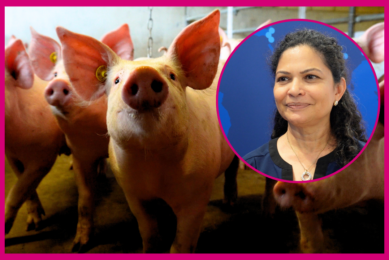State -of -the-art intensive livestock farming
The Animal Sciences Group of the University of Wageningen in the Netherlands has compiled a report concerning the establishment of so-called ‘mega livestock companies’ for the pig and poultry industries.
The study was carried out on behalf of the Council for the Rural Area.
‘Mega companies’ are different to normal livestock companies in terms of the environment, animal health and welfare and human health. In addition, they have more resources at their disposal to innovate and invest.
Effects on the physical environment
It is evident that the clustering of companies with more animals in a certain location leads to increased effects on the environment. Through new technological developments, these ‘mega companies’ have the possibility to reduce much of the emissions from ammonia and other substances that accompany regular livestock operations.
Such developments are envisaged in the processing of manure for pigs and in the burning of manure in the case of poultry are expected.
For the pig industry, technological developments offer a broader perspective regarding the use of manure by-products such as that of biogas.
Location, logistics and transport
On a regional level, ‘mega farms’ could be advantageous for the landscape and environment through optimising technology and infrastructure in the transport of feed and animals situated in one location.
Effect on humans and animal health
The chance of an outbreak of an infectious disease is less in such mega companies than in normal operations as they have less contact with other farms thus reducing the risk of infection. However, the damage would be larger in the event of an outbreak.
Public
The perception among the public is important in the discussion about establishing such mega companies.Insecurities about the consequences of improving animal welfare and the subsequent changes in the landscape are feeding the discussion about society’s acceptance of such companies.
The report can be viewed in Dutch here .











